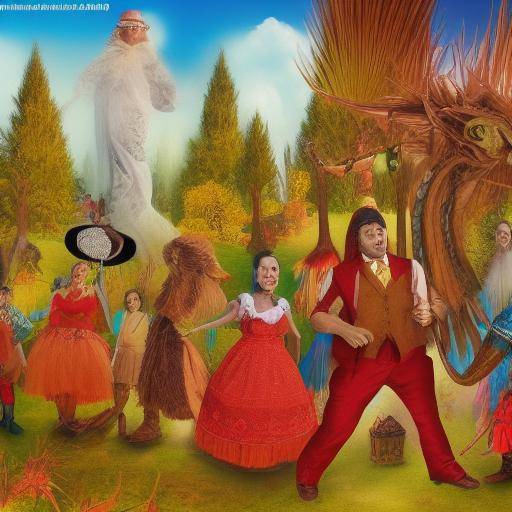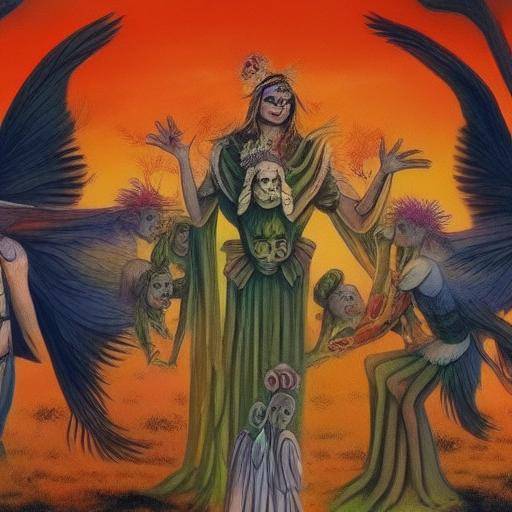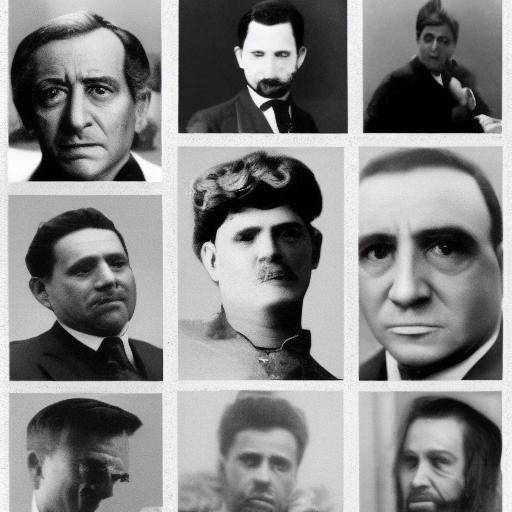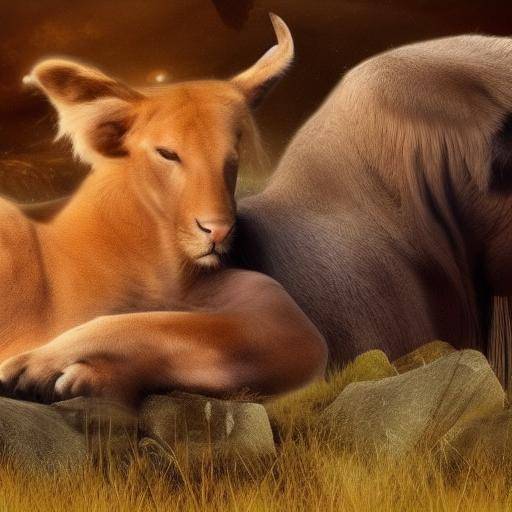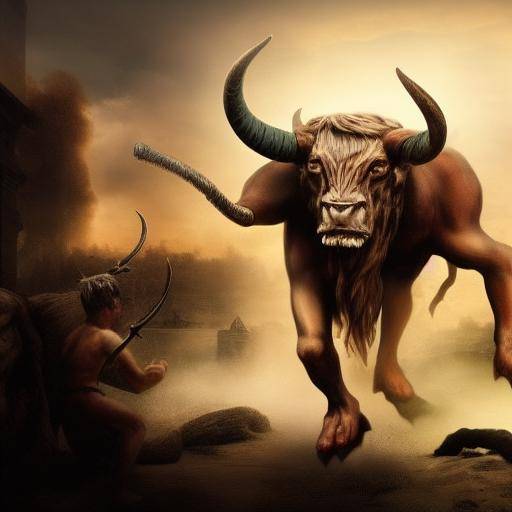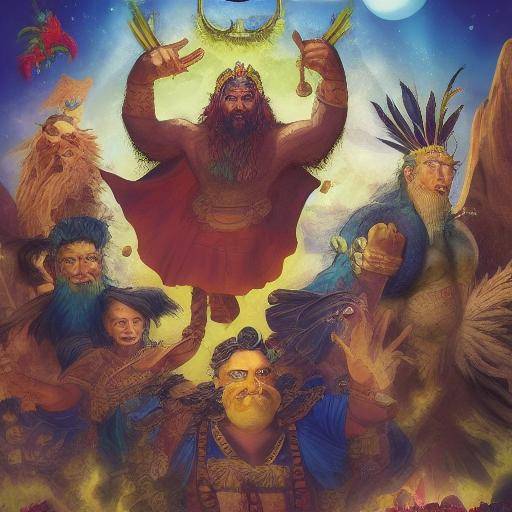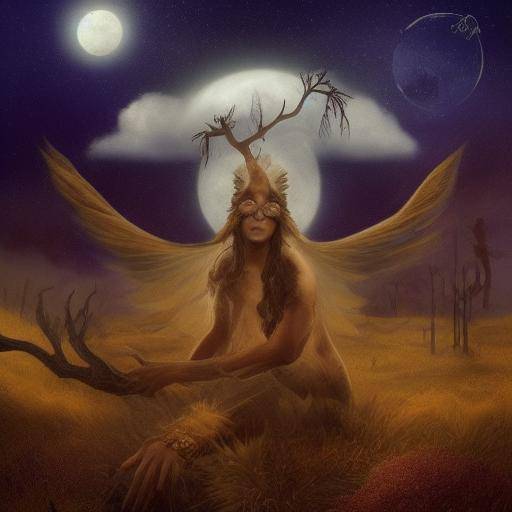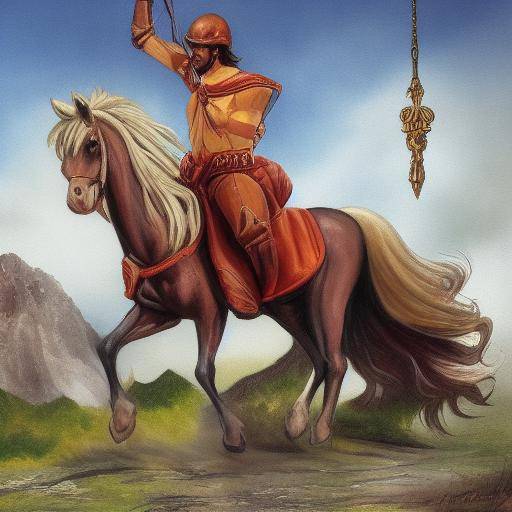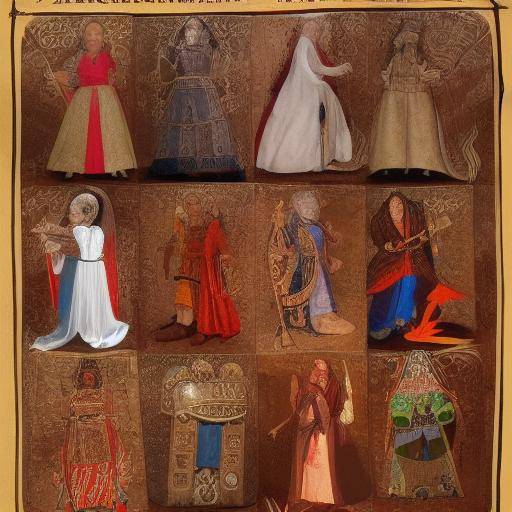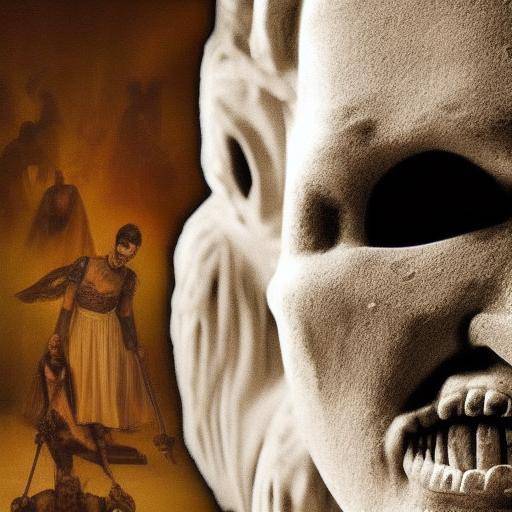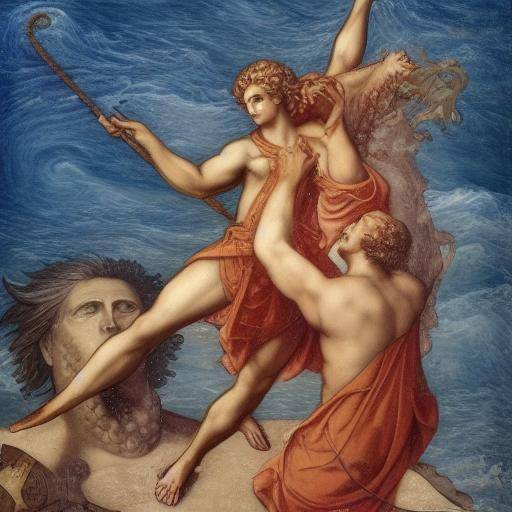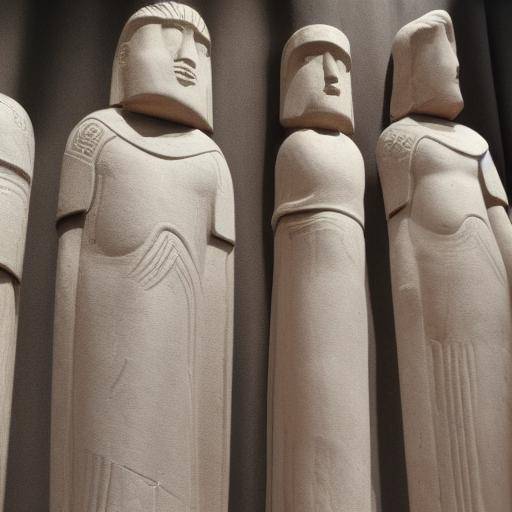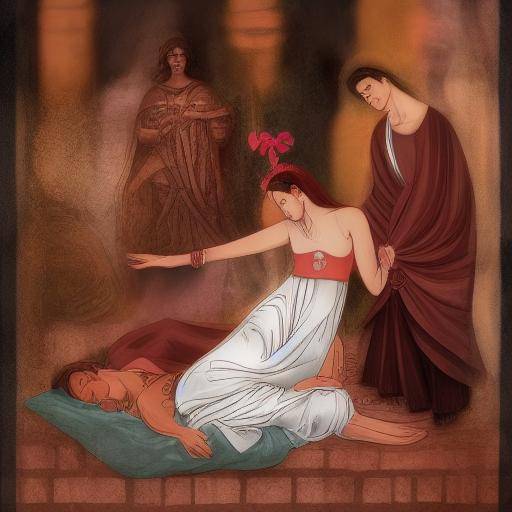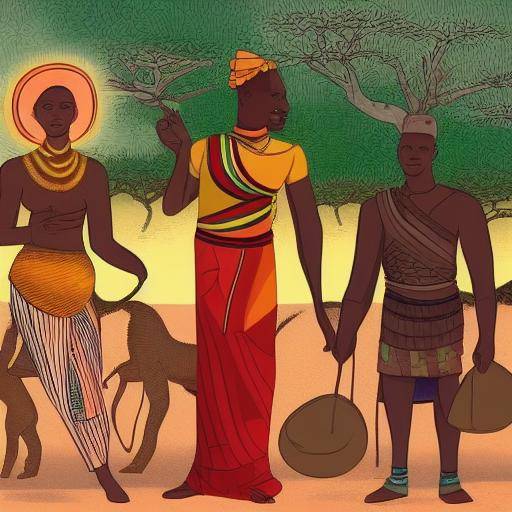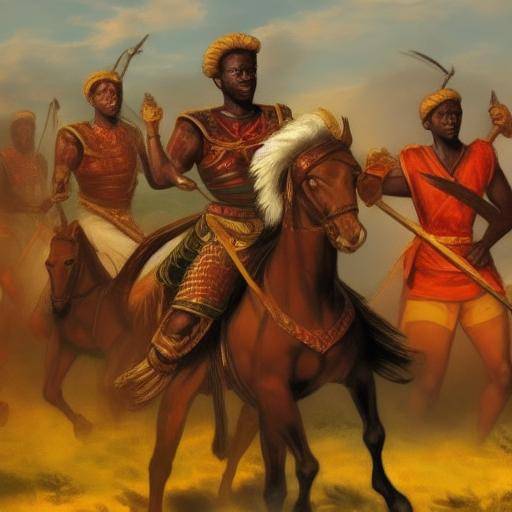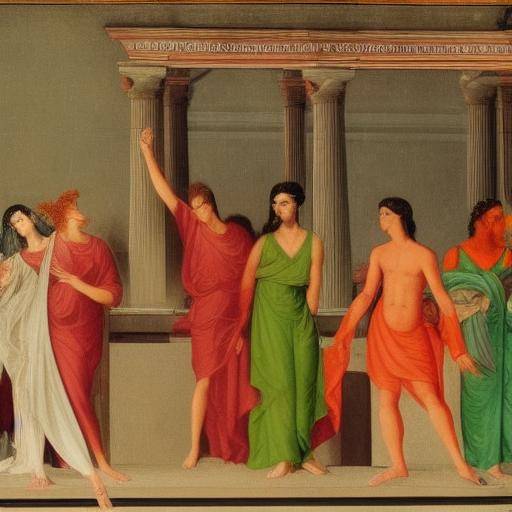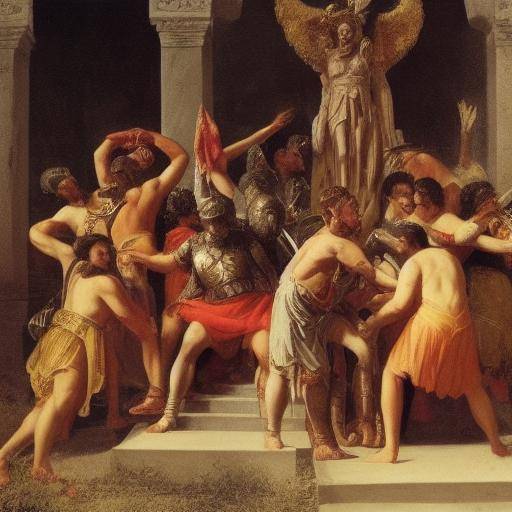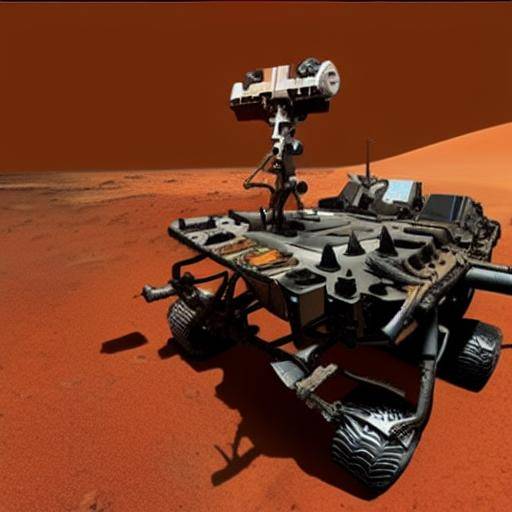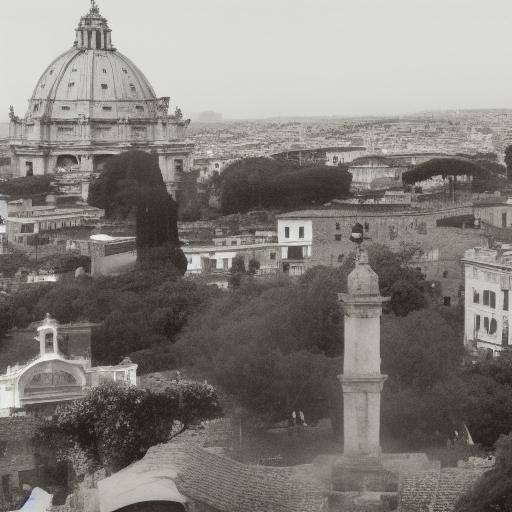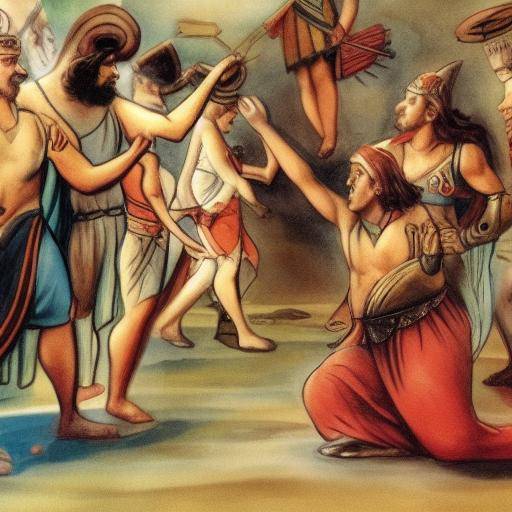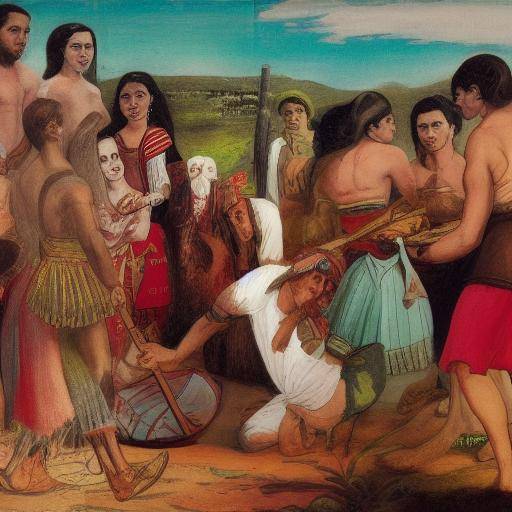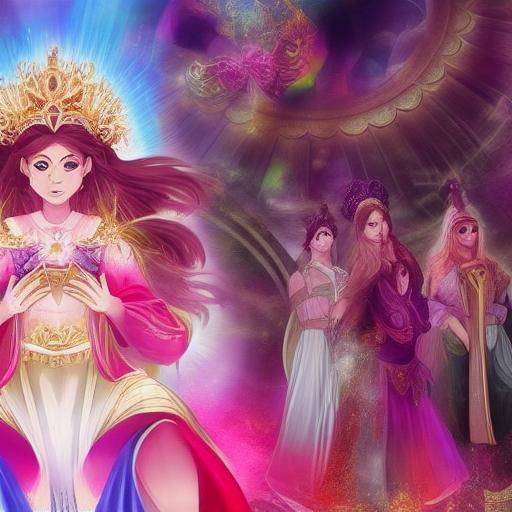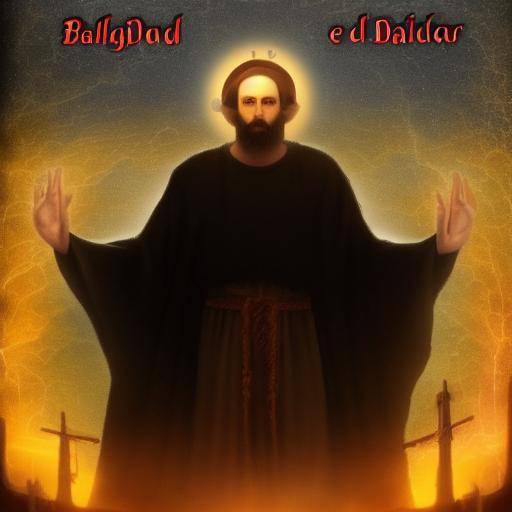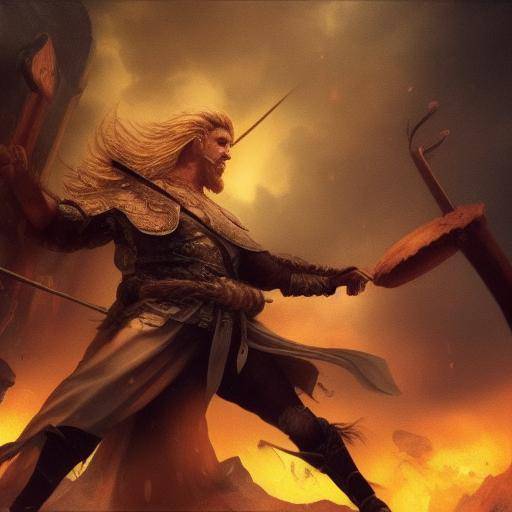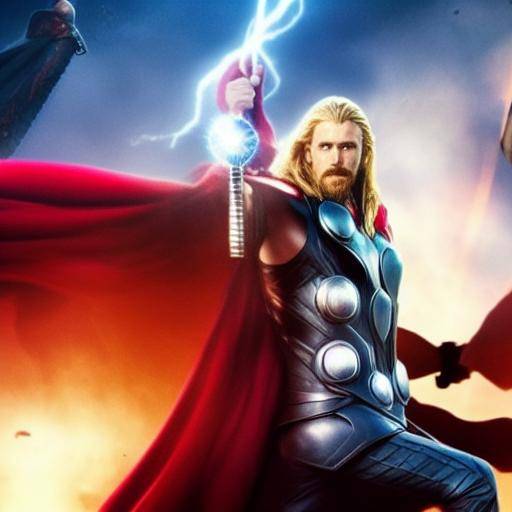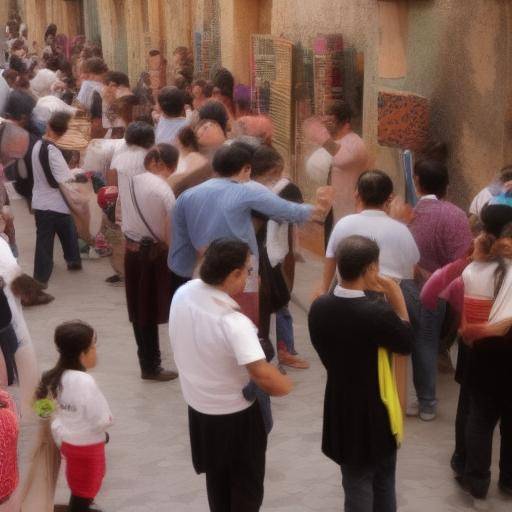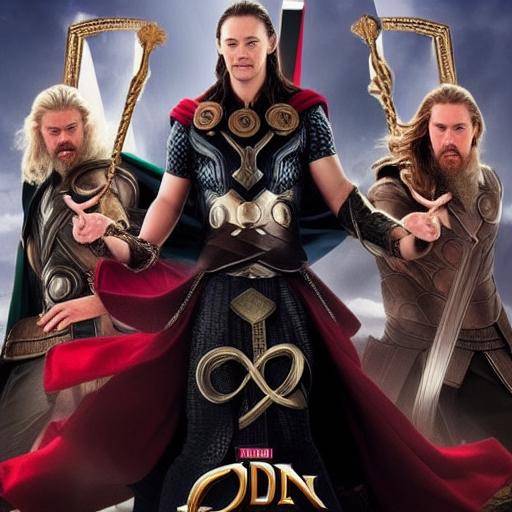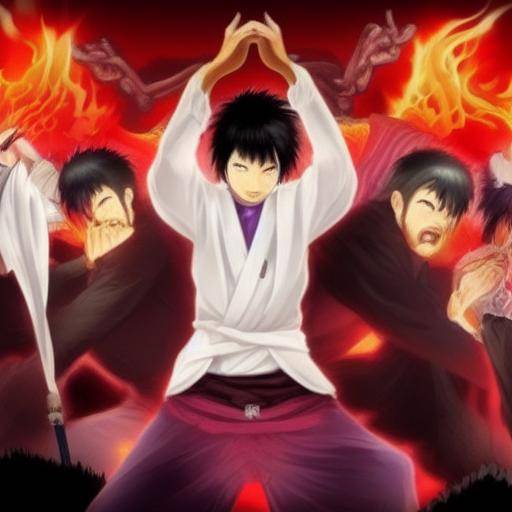
In ancient Rome, belief in the gods and mythology played a central role in the lives of its inhabitants. The Roman gods were worshipped and revered in their temples, and their influence extended to all aspects of society, from religion to politics and culture. In this article, we will explore in detail the gods of the Roman pantheon, as well as the stories and cults surrounding them. Dive into this fascinating journey through Roman mythology, where you will discover the richness of legends, symbolism and religious practices that shaped ancient Rome.
Introduction
Roman mythology is a vast and complex system of religious beliefs and practices that played a fundamental role in the life of the ancient Romans. These gods and goddesses were worshipped and feared, invoked in moments of joy and sadness, and their influence extended to all spheres of Roman life. In this article, we will explore the stories and cults surrounding the gods of the Roman pantheon, revealing the fascinating interaction between mythology and everyday life in ancient Rome. Prepare to enter into a world of gods and goddess, rituals and ceremonies, and myths and legends that will capture your imagination and transport you to remote times.
History and Background of the Roman Gods
Roman mythology originates in the religious culture of ancient Rome and extends over several centuries, deeply influencing Roman society. The Roman gods, known as the Roman pantheon, were an amalgam of indigenous and foreign deities, whose stories and powers intertwined in the Roman cosmogony.
Origins and Evolution
The origins of Roman mythology can be traced to the times of the first inhabitants of the Italian peninsula, who worshiped local deities and natural spirits. Over time, the influence of Etruscan and Greek cultures enriched the Roman pantheon, introducing new deities and myths that were integrated with local beliefs. This religious syncretism allowed Roman mythology to evolve, adopting and adapting elements of other religious traditions.
The Importance of the Gods in Cotidian Life
The veneration of the gods was reflected in the religion, art, literature and social practices of ancient Rome. The Romans believed that the gods actively intervened in human affairs, and worshiped them through sacrifices, festivals and rituals in the temples dedicated to each divinity. The importance of the Roman gods in everyday life was such that their names are present in the toponymy, in the nomenclature of the festivities, and even in the organization of time, determined by their religious calendars.
Within the Roman pantheon, every goddess represented different aspects of life and the universe, from love and war to agriculture and trade. Some of the most prominent gods included Jupiter, the father of the gods and the ruler of heaven; Juno, the goddess of marriage and the family; Minerva, the goddess of wisdom and craft; and Neptune, the god of the sea. In addition, the Roman pantheon also included a series of smaller gods, protective spirits, and local deities that were worshipped throughout the Roman Empire.
Cultural Influence and Sincretism
As the Roman Empire expanded, the Romans found and adopted deities from other cultures. This process of syncretism allowed the Roman and foreign gods to coexist and merge, further enriching the Roman pantheon. For example, the Egyptian goddess Isis was widely venerated in Rome, and the worship of the Persian god Mitra was also integrated into the Roman religion.
Main Gods and Gods of the Roman Pantheon
Jupiter
Jupiter, known as the king of the gods, was the god of heaven and thunder. His symbol was lightning, and he was considered the protector of the state and its laws. Jupiter was identified with the Greek god Zeus and shared many of his attributes and myths.
Juno
Juno, Jupiter's wife, was the goddess of marriage and the protector of women. She was venerated as the Queen of Heaven and had a fundamental role in festivities and marriage rites. Juno was identified with the Greek goddess Hera.
Minerva
Minerva, the goddess of wisdom, strategic war and arts, was one of the most important deities of the Roman pantheon. It represented the intelligence and manual skill, and was identified with the Greek goddess Athena.
Neptune
Neptune, the god of the sea, was venerated by sailors and all those who depended on the sea for their livelihood. He was also the god of earthquakes and horses, and was identified with the Greek god Poseidon.
Mars
Mars, the god of war, was one of the most important deities for the Romans, who considered him the father of Rómulo and Remo, the founders of Rome. It represented strength and military power, and was identified with the Greek god Ares.
Venus
Venus, the goddess of love, beauty and fertility, played a central role in the festivities related to spring and renewal. It was identified with the Greek goddess Aphrodite.
Religion and Practice
Festivals and Celebrations
The Romans celebrated numerous festivals and holidays in honor of their gods. Among the most important were the Saturnals in honor of Saturn, the Lupercals in honor of Fauno and the Vestals in honor of Vesta. These festivals were occasions of great celebration, including banquets, sacrifices and ritual activities.
Sacrifices and Offers
Animal sacrifices and food offerings and valuable objects were common practices in Roman religion. The Romans believed that these acts pacified the gods and assured their favor and protection.
Temples and Shrines
Each god had his own temple where the followers could worship. The temples were sacred places where sacrifices and religious ceremonies were performed. Some of the most famous temples in Rome include the Temple of the Most Holy Jupiter in the Capitol and the Pantheon, dedicated to all gods.
Conclusion
Roman mythology and worship of their gods played a crucial role in the life of ancient Rome. Through their stories, rituals and celebrations, the Romans expressed their devotion and sought the protection and favor of their deities. The gods of the Roman pantheon were not only religious figures, but also influenced Roman politics, culture and identity. By exploring the legends and cults of these gods, we can gain a deeper understanding of the rich cultural heritage of ancient Rome and how their religious beliefs shaped their world.
This article has taken you on a fascinating journey through Roman mythology, revealing the importance of the gods in the daily life of the ancient Romans. From the mighty Jupiter and Juno to the wise Minerva and the fierce Mars, every god and goddess played a vital role in the rich upholstery of Roman life.

